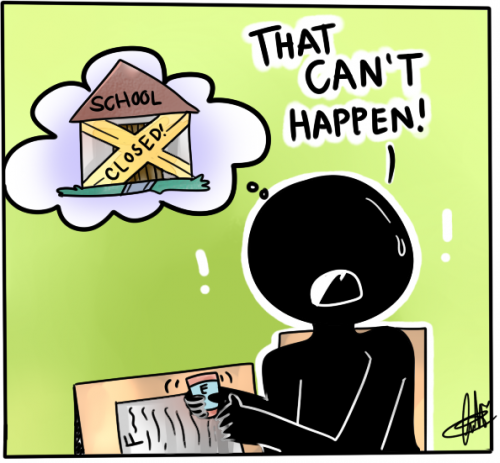Atlanta Cheating Incident Should Prompt Reevaluation

Editor in Chief
In August 2014, 12 former Atlanta Public Schools employees, charged with racketeering, began the trial that would determine the consequences of falsifying Criterion-Referenced Competency Test (CRCT) scores. The CRCT is Atlanta’s version of a statewide standardized test, similar to California’s STAR testing. These standardized tests are indicators for how much funding a school is granted, whether they need restructuring, etc. One of the teachers involved, Damany Lewis, changed students’ answers when he realized they would not meet the test requirements necessary to keep the school’s doors open, as reported by the New Yorker.
The teachers were clearly in the wrong when they falsified the test scores. Changing the test scores not only impacted the school’s reputation, but it also took away from students’ education since the test scores misrepresented the students’ knowledge and they no longer received the education that they needed to understand the material. However, an article published by the National Public Radio (NPR) found that cheating in Atlanta public schools had likely gone as far back as 2001, when the No Child Left Behind Act (NCLBA) came into effect and mandated annual standardized testing in every state. This clearly exemplifies the overwhelming dependency on these tests, a seemingly good idea on paper but one that is executed poorly. Standardized testing has not become a test of skill and knowledge, but rather a test of mental stamina, and the reliance on reviewing schools based on standardized testing has become far too predominant. The pressure on schools to meet a certain test average has become so high that employees feel the need to falsify test records just to avoid being closed down.
The Atlanta scandal was not an isolated incident. Teachers across the country have been caught cheating, falsifying test scores or viewing unreleased test questions, according to the Huffington Post. Instead of putting the teachers on trial, we need to step back and analyze the big picture — why is it that standardized testing has resulted in professional employees cheating just to ensure that children can continue to receive an education? Since 2001, standardized testing has come to represent not just a few hours of test-taking every school year; somewhere along the way, the NCLB Act has turned the tests into an indicator of everything that one needs to know about a school, rather than analyzing other factors as well. The Atlanta incident is just another testament in a string of cases indicating and testifying against the issues in the standardized testing system under the NCLB Act, proving that the focus now should lie on preventing these issues rather than punishing the perpetrators after the fact.